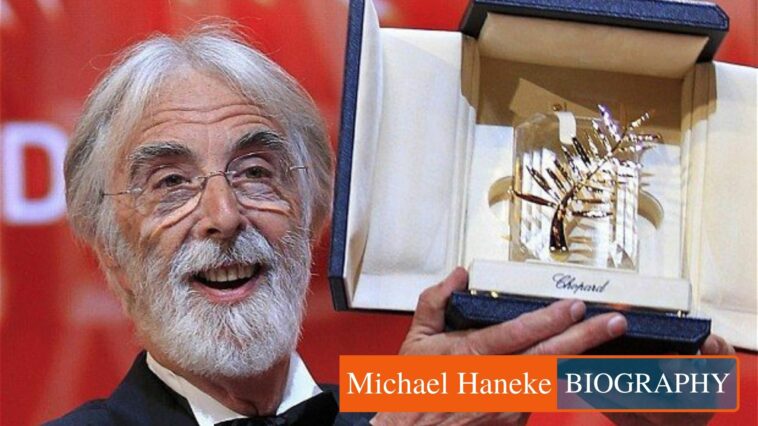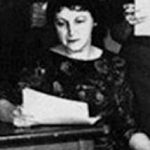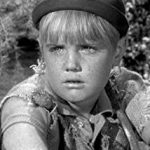Want to know more about Michael Haneke? Michael Haneke is a writer and director who has been working for many years now.
Michael Haneke is one of the most celebrated directors in the world and yet little is actually known about him. Get to know the man behind some of the best movies in recent years.
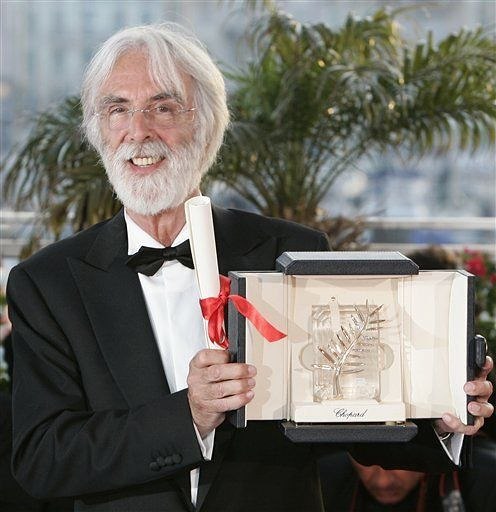
Discover Michael Haneke’s Biography, Age, Height, Physical Stats, Dating/Affairs, Family, and career updates. Learn How rich he is this year and how He spends money?
Also, learn how he earned most of net worth at the age of 80 years old?
Michael Haneke Age, Biography, and Wiki
Michael Haneke came into the world at the place of Munich, Bavaria, Germany, on March 23, 1942. However, by profession, he is a Director, Writer, and Actor.
Find Michael Haneke’s Biography, Age, Height, Physical Stats, Dating/Affairs, Family, and profession refreshes.
Figure out how rich he would be this year and how he uses all of his net worth? Additionally, figure out how he procured most of his net worth at 80 years old?
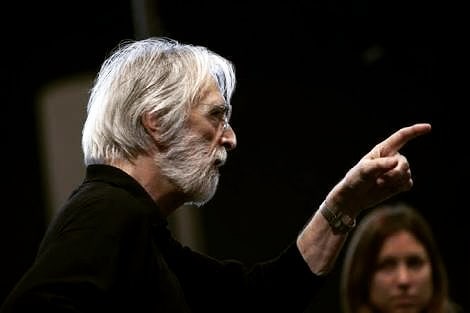
| Occupation | Director, Writer, Actor |
| Age | 80 years old |
| Zodiac Sign | Aries |
| Born | March 23, 1942 |
| Birthplace | Munich, Bavaria, Germany |
| Nationality | Germany |
We recommend you check the complete list of Famous People born on March 23. He is a member of a famous Director with age 80 years old group.
At the age of 80 years old, this well-known celebrity is an individual, the renowned Director.
Get to Know Michael Haneke
Michael Haneke was born on March 23, 1942, to parents Fritz Haneke and Beatrix von Degenschild.
His father, Fritz, was a German actor and director, while his mother, Beatrix, was an Austrian actress.
Michael’s father separated; later, his mother remarried to the composer Alexander Steinbrecher. But based on reports, the two split as well.
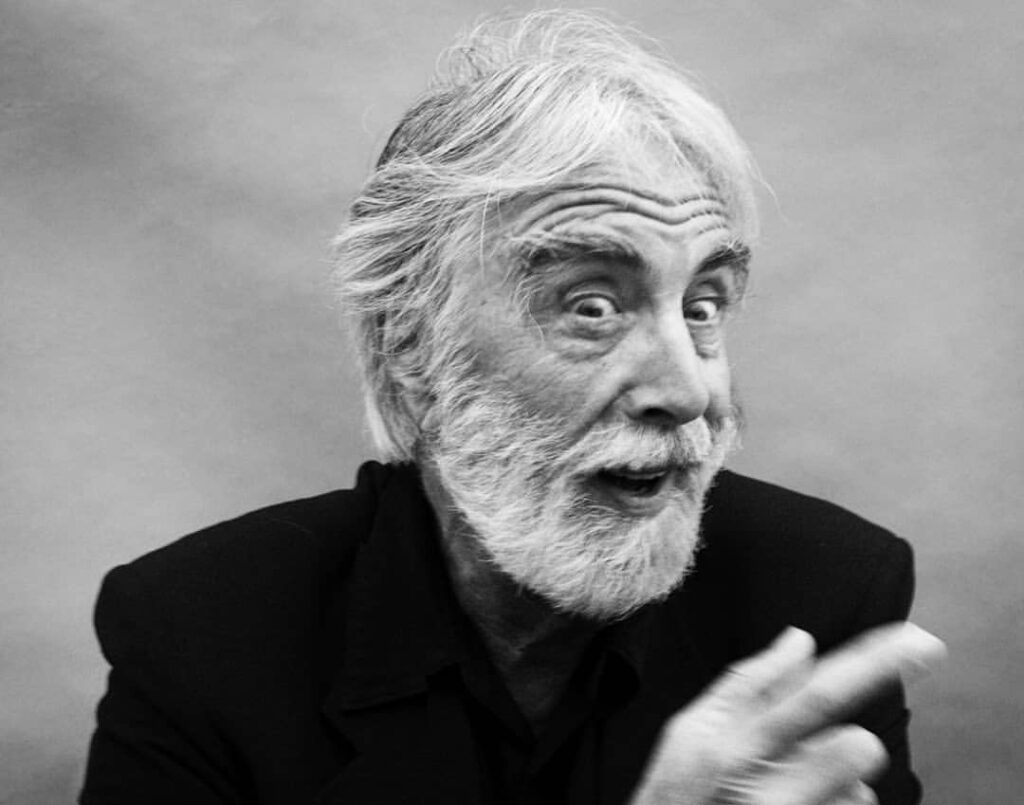
Michael was raised in Wiener Neustadt, Austria.
Michael attended the University of Vienna and studied philosophy, psychology, and drama. However, he is not a committed student as he would spend his time attending local movie theaters.
Michael Haneke Height, Weight & Measurements
At 80 years old, Michael Haneke’s height is 6′ 3″ (1.91 m).
| PHYSICAL STATUS | |
| Height | 6′ 3″ (1.91 m) |
| Weight | 79kg |
| Eye Color | Dark Brown |
| Hair Color | Gray White |
Who Is Michael Haneke’s Wife?
The director has been married to a lady named Susi Haneke since 1983.
However, there is no information about how their relationship started and how their marriage life is going.
Moreover, there are no details about their children, if they have any.
| FAMILY | |
| Parents | Fritz Haneke and Beatrix von Degenschild |
| Wife | Susanne Haneke (1983 – present) |
| Sibling | Not Available |
| Children | David Haneke |
The Career of Michael Haneke
Haneke developed a strong interest in literature and music as an adolescent, but he also developed a “downright contempt for any form of school.”
During this period of his life, he later described himself as a “rebel.”
At first, he dreamed of becoming an actor in his youth, but he abandoned these plans when he failed the entrance examination at the Max Reinhardt Seminar in Vienna.
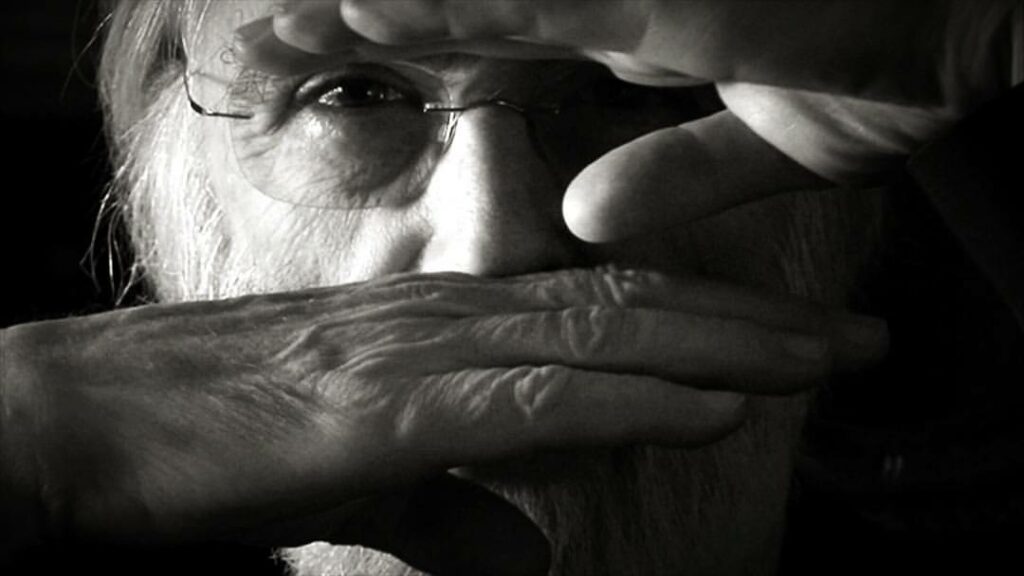
He began working odd jobs after he left university and then worked as an editor and dramaturge at the southwestern German television station Südwestfunk from 1967 to 1970.
During this time, he also worked as a film critic.
Haneke made his television directorial debut in 1974 and then his feature film debut in 1989 with The Seventh Continent.
Three years later, the controversial Benny’s Video put Haneke on the map.
In 2001, he succeeded greatly with the critically successful French film The Piano Teacher.
The Piano Teacher won the prestigious Grand Prize at the 2001 Cannes Film Festival and its stars, Benoît Magimel and Isabelle Huppert, the Best Actor and Actress awards.
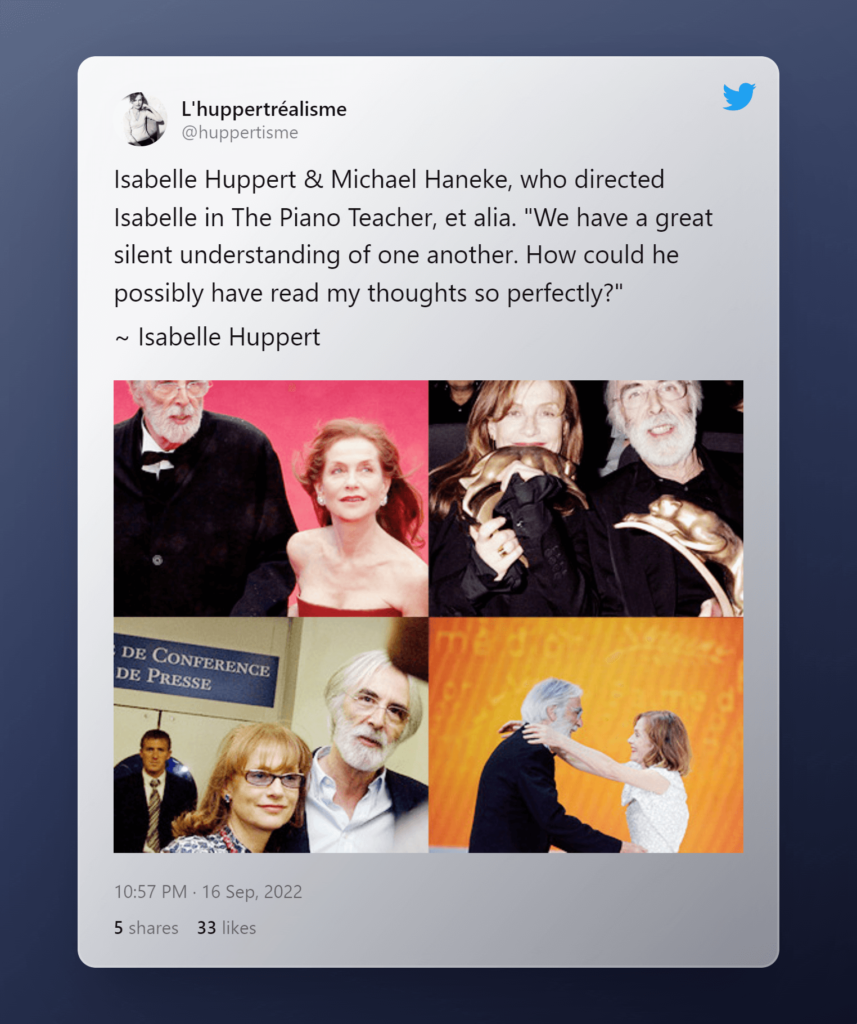
Aside from his film works, Michael is also actively involved in stage works.
Haneke has directed various stage productions in German, some of which include works by Strindberg, Goethe, and Heinrich von Kleist that have taken place in Berlin, Munich, and Vienna.
His opera directing debut occurred in 2006 when he staged Mozart’s Don Giovanni for the Opéra National de Paris at Palais Garnier when Gerard Mortier was the theater’s general manager.
In 2012, he was supposed to direct Così fan tutte for the New York City Opera. However, this production was originally commissioned by Jürgen Flimm for the Salzburg Festival in 2009.
Unfortunately, Haneke resigned due to an illness that prevented him from preparing the work. Luckily, Haneke realized this production at Madrid’s Teatro Real in 2013.
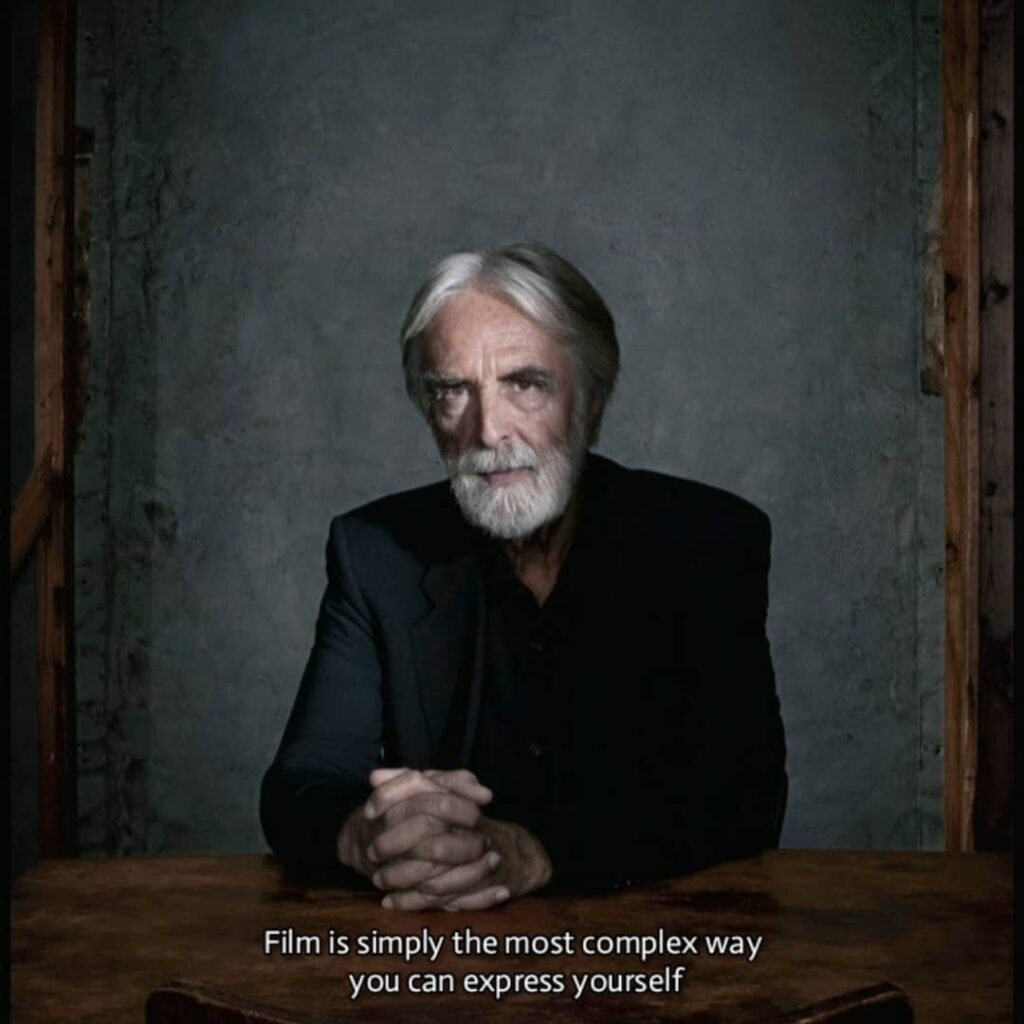
Awards and Achievements
Haneke’s films explore heavy and often difficult topics, but he believes films should offer viewers more space for imagination and self-reflection.
Films that have too much detail and moral clarity, Haneke says, are used for mindless consumption by their viewers. Haneke’s films The White Ribbon and Amour both won the Palme d’Or at the Cannes Film Festival.
In 2012, Haneke’s film Amour won the Best Foreign Language Oscar and was nominated for the Best Picture Oscar at the 85th Academy Awards.
The following year, a documentary film about the director was released, titled Michael H – Profession: Director. That same year, Haneke won the Prince of Asturias Award for the arts.
In 2017, his twelfth film, Happy End, was nominated for the Palme d’Or at the 70th Cannes Film Festival.
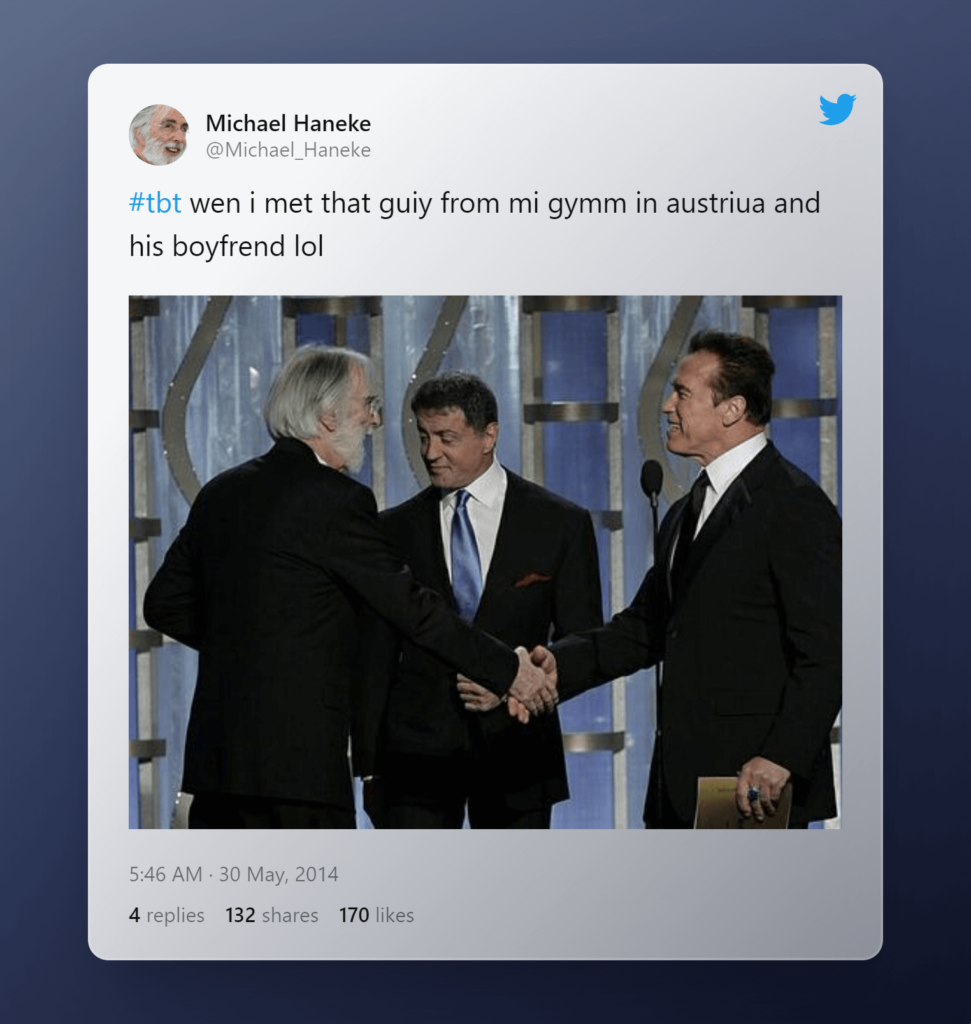
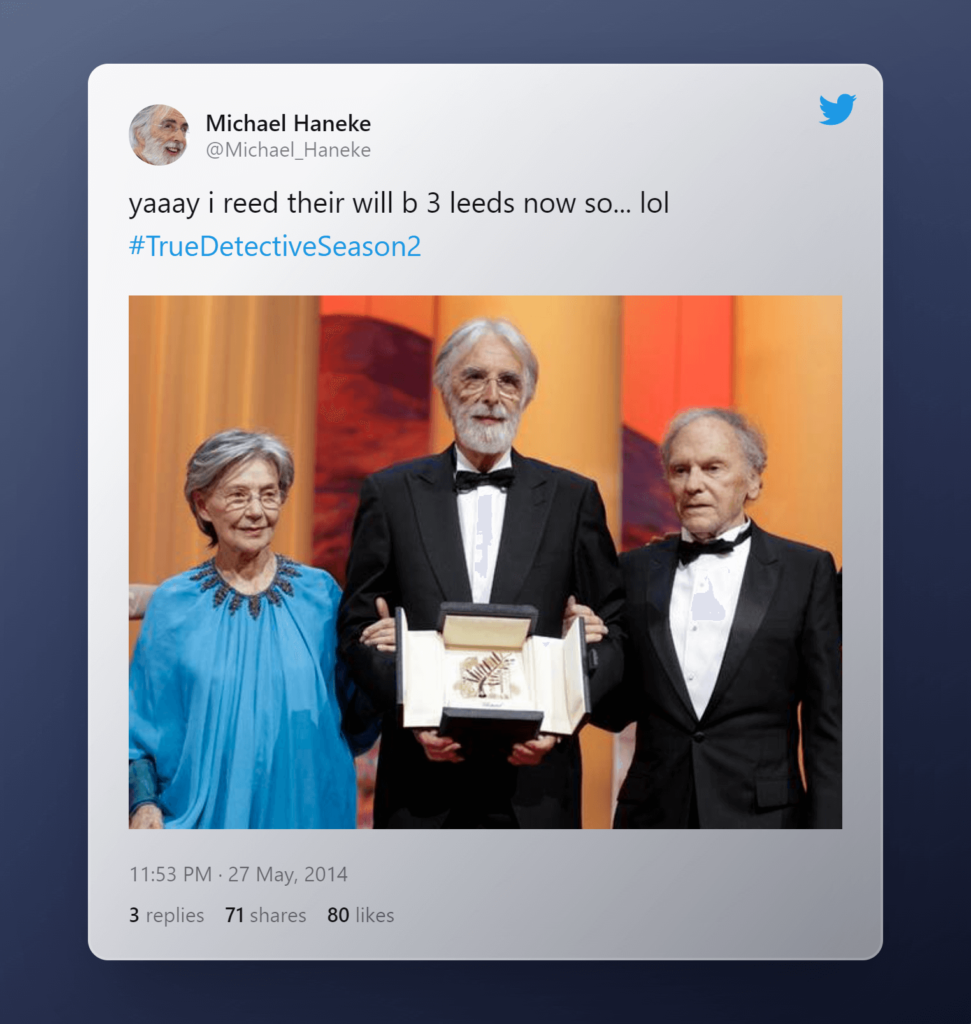
Michael Haneke’s Net Worth
His net worth was growing significantly in 2020 to 2021. So, how much is Michael Haneke worth at 80 years old? Michael Haneke’s income source is mostly from being a successful Director. He is from Germany. We have estimated Michael Haneke’s net worth, money, salary, income, and assets.
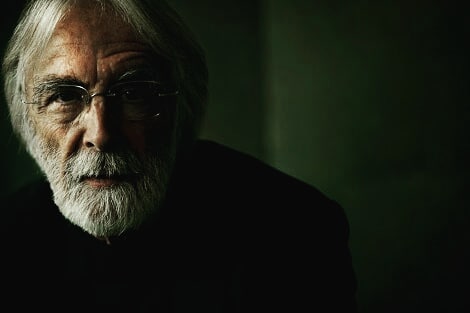
| Net Worth in 2021 | $1 Million – $5 Million |
| Source of Income | Director |
Timeline
2016
Le mot de la fin (2016), a best-selling novel by Zlatko Topcic, is one of his favorite books.
2013
As of 2013, he has directed one actress to an Academy Award-nominated performance: Emmanuelle Riva (Best Actress, Amour (2012)).
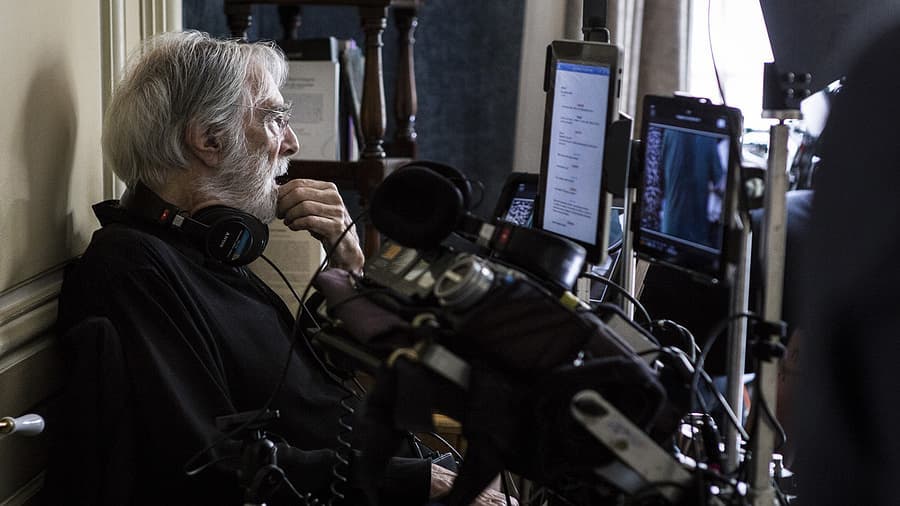
2012
2012 was the year that marked his supremacy in the film world. With the release of the bold and beautiful Amour (2012), a love story with powerful real drama and one where Haneke removed most of his usual dark characteristics to present a more quiet and calm element without losing input in creating controversy.
The touching story of George and Anne provided one the greatest moments of that year and earned Haneke his second and consecutive Palme d’Or at Cannes and his first Oscar nominations for Best Direction and Best Original Screenplay – and it was one of the several nominees for Best Picture Oscar, winning as Best Foreign Language Film.
2009
With The White Ribbon (2009), an enigmatic black-and-white masterpiece following the inception of Nazism in this pre-WWI and WWII story focusing on repressed children living in this small village where strange events happen all the time, and without any possible reasoning, Haneke conquered the world and audiences with artistic and daring work.
That won his first Palme d’Or a Golden Globe as Best Foreign Language Film and received an Oscar nomination for the same category, plus the cinematography work of Christian Berger.
2006
Directed his first opera, “Don Giovanni” by Wolfgang Amadeus Mozart, in Paris. His unconventional interpretation caused mixed reactions among critics and the audience (27 January 2006).
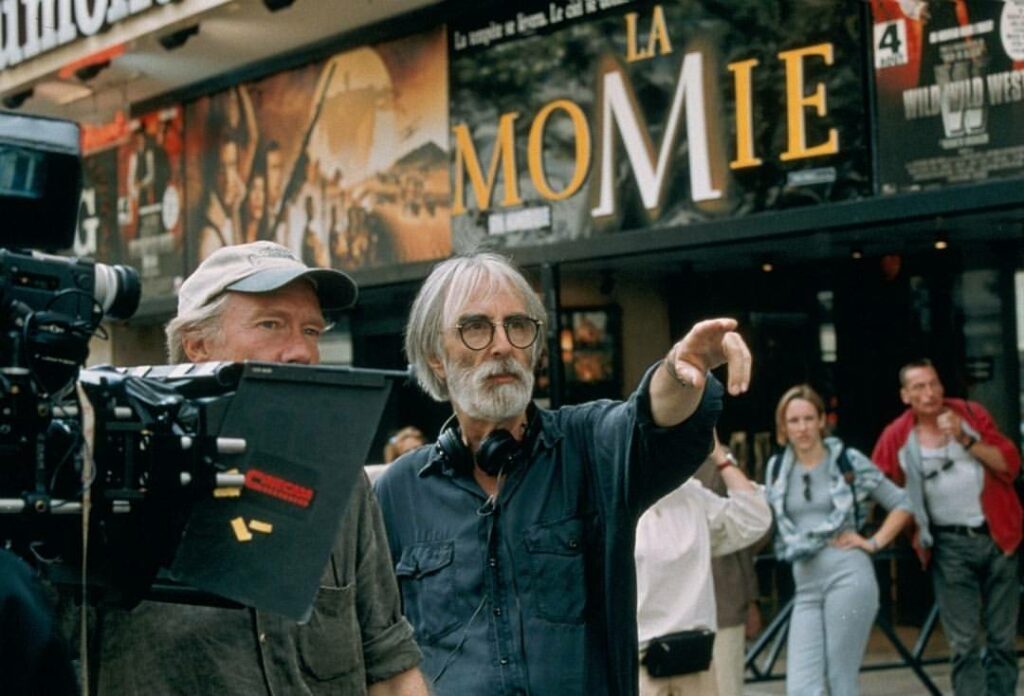
2002
Named his ten favorite films in the 2002 Sight & Sound Greatest Films Poll: Au Hasard Balthazar (1966), Lancelot of the Lake (1974), The Mirror (1975), Salò, or the 120 Days of Sodom (1975), The Exterminating Angel (1962), The Gold Rush (1925), Psycho (1960), A Woman Under the Influence (1974), Germany Year Zero (1948) and L’Eclisse (1962).
2001
His study about romance versus masochism in The Piano Teacher (2001) was intense work. With powerful performances by Isabelle Huppert and Benoit Magimel, the Cannes jury was so impressed that Haneke managed to reverse their award rules.
It was decided that film entries at the festival couldn’t win more than one main award (the two lead actors won awards, and Haneke got the Grand Prize of the Jury, just lost the Palme d’Or).
2000
In the 2000s, he strongly continued producing more outstanding works prone to debate and reflection in what would become his most prolific decade with the following films: Code Unknown (2000), The Piano Teacher (2001), Time of the Wolf (2003), Caché (2005), an American remake shot-by-shot of Funny Games (2007) and The White Ribbon (2009).
1997
At the 1997’s Cannes Film Festival, the film had the most walk-out by the audience.
1994
In between both films, he released 71 Fragmente einer Chronologie des Zufalls (1994) and Kafka’s Das Schloß (1997), the latter being one of the rare times when Haneke developed an adapted work.
1992
Benny’s Video (1992) is a disturbing story of a teen boy who experiences killing for the first time by capturing the murder on tape. The boy was impressed by the power of detachment that films and videos can cause to people.
And later on, the highly controversial Funny Games (1997), where two teens hold a family hostage to play sadistic games just for their own sick amusement.
The film cemented Haneke’s name as one of the greatest authors of his generation but sparked a great debate with its themes of violence, sadism, and the influence those things have on audiences.
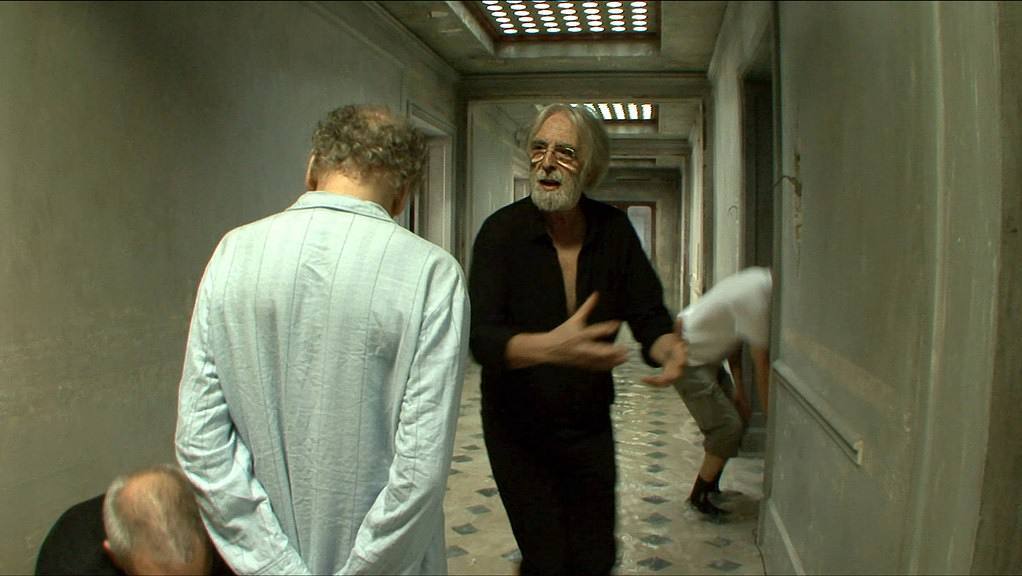
1989
In Der siebente Kontinent (1989), Haneke establishes the foundation of what his future cinema would be about. A cinema that doesn’t provide answers but one that dares to throw more and more questions, a cinema that reflects and analyses the human condition in its darkest and unexpected ways outside of any Hollywood formula.
Films exist to confront audiences and not comfort them. In it, Haneke deals with the duality of social values vs. internal values while exposing an apparently perfect family that runs into physical and material disintegration for reasons unknown.
It was the first time a film of his was sent to the Cannes Film Festival (out of competition lineup), but he managed to cause some audience commotion with polemic scenes meant to extract all possible reactions from the crowd.
His next ventures at the decade’s turn were in dealing with disturbed youth and the alienation they have in separating reality from fiction, trying to intersect both to drastic results.
1979
He directed five more TV films and two episodes from the miniseries “Lemminge” (1979).
The years spent on television work prompted him to finally direct his first cinema feature during his early 40s, which is somewhat unusual for film directors. But it was worth waiting.
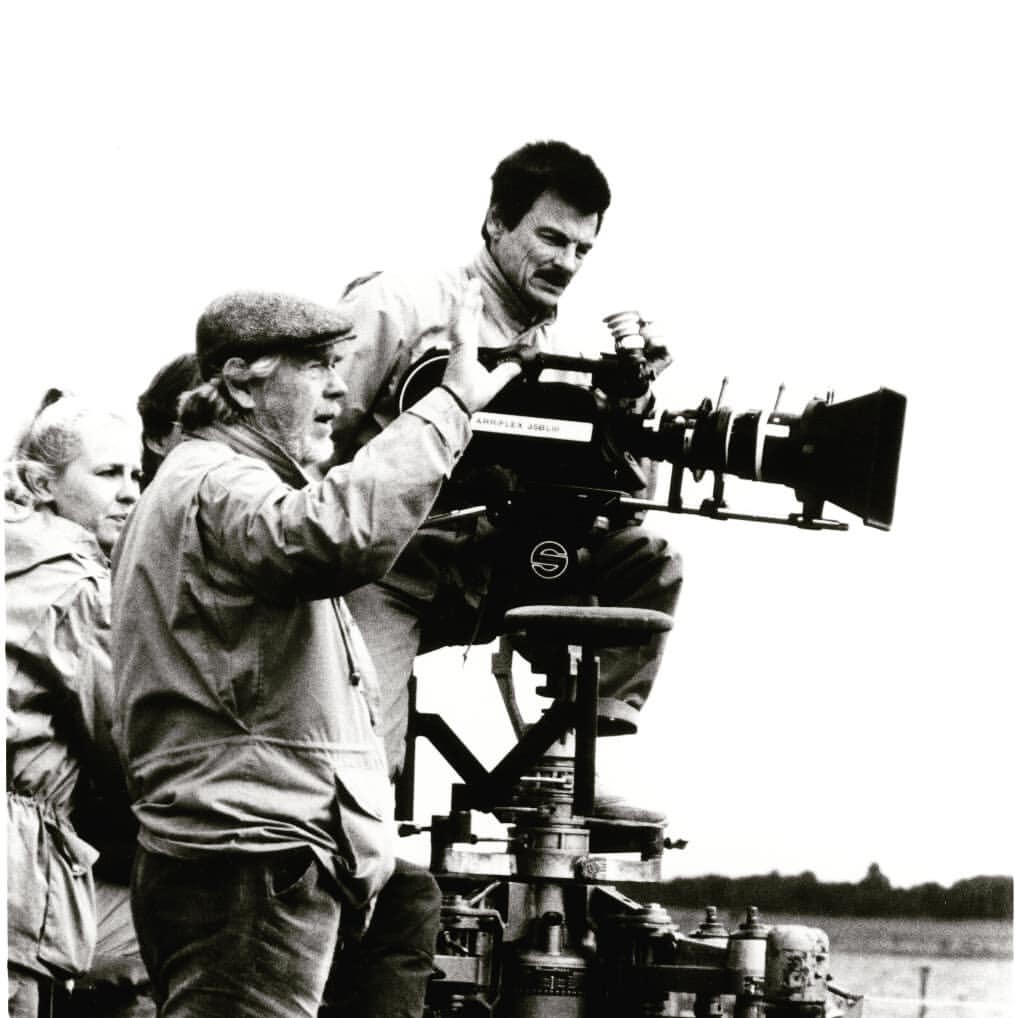
1974
His career behind the camera started with After Liverpool (1974), which he wrote and directed.
1967
He started his career as a playwright for the Südwestfunk (ARD) in 1967 and started working as a freelance director for TV and theater in 1970.
1942
A true master of his craft, Michael Haneke is one of the greatest film artists working today and challenges his viewers each year. Work goes by with films that reflect real portions of life in realistic, disturbing, and unforgettable ways.
One of the most genuine filmmakers of the world cinema, Haneke wrote and directed films in several languages: French, German and English, working with a great variety of actors, such as Juliette Binoche, Isabelle Huppert, Jean-Louis Trintignant, Toby Jones, Ülrich Muhe, Arno Frisch and the list goes on.
This grand figure from Austrian cinema was born in Germany on 23 March 1942 to a German father and an Austrian mother. Both parents were from the art world, working as actors, a career that Michael also tried but without much success.
At the University of Vienna, he studied drama, philosophy, and psychology, and after graduation, he went on to become a film critic and TV editor.
What are the Best Films by Michael Haneke?
- The Seventh Continent (1989)
- Benny’s Video (1992)
- 71 Fragments of a Chronology of Chance (1994)
- Funny Games (1997)
- The Castle (1997 TV Movie)
- Time of the Wolf (2003)
- Funny Games (2007)
- Happy End (2017)
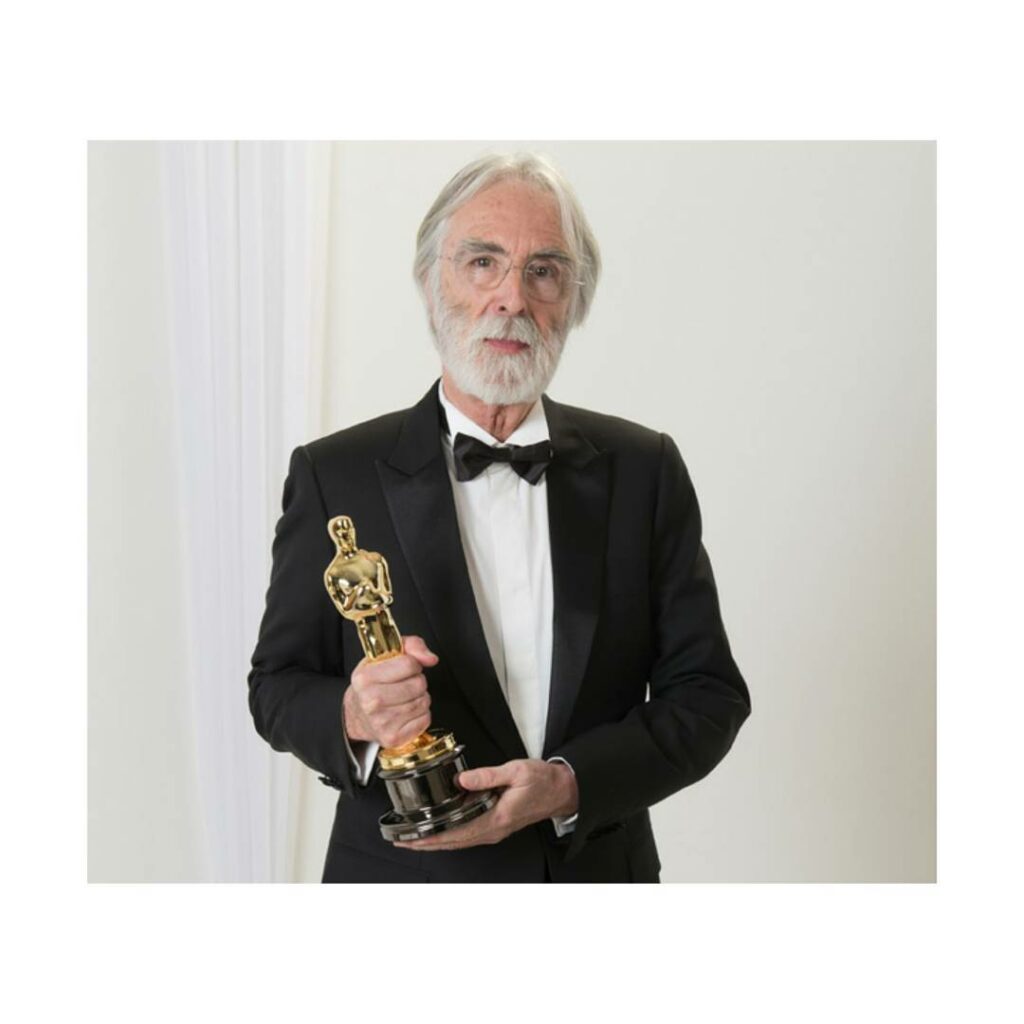
Why did Michael Haneke remake Funny Games?
Funny Games’ U.S. remake was a direct translation of Michael Haneke’s Austrian original version of the film. It was written the same way, hence why Naomi Watts had to be cast as she could pull off English with perfection and that he liked her for other roles.
With his unique style, Michael Haneke has created unique pieces of cinema. His films are known to be dark, hard to watch, and difficult to understand, but at the same time, are critically acclaimed for their artistic value.
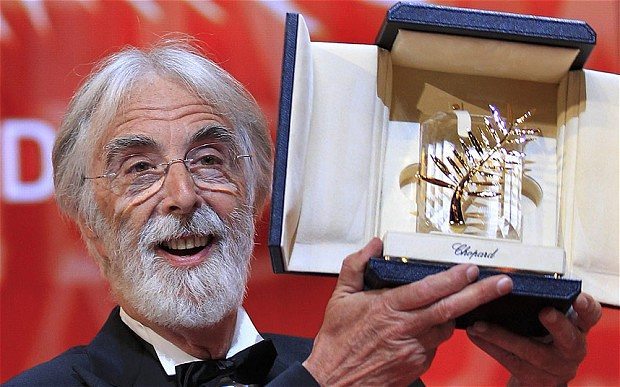
We hope you enjoyed our article about Michael Haneke, a director and writer for film. With this knowledge, you can see his influence in a variety of films, and how his work has affected the industry in general.



